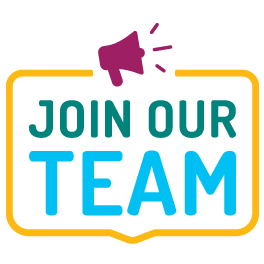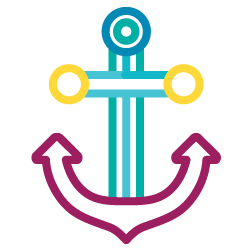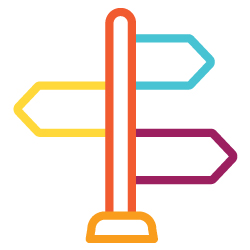
Career Planning & Employment for Adults
People with disabilities seeking employment face many overlapping challenges. Financial worries, negative public attitudes; health challenges; limited skills, training, and work history; fears about losing cash benefits and access to health insurance; lack of awareness about resources and supports available in their community . . . the barriers can seem insurmountable.
And yet people with disabilities do successfully pursue and attain their career and independent living goals. Consider this:
- 30% of white-collar, college-educated employees have a disability.
- 62% of these have an “invisible disability”, meaning others don’t know about the disability unless they’re told.
- More than 80% of managers rated employees with disabilities the same or higher when asked about acquiring new skills and adapting to new situations.
Many managers rate employees with disabilities as more dedicated and less likely to leave the job than their peers. Source: Workplace Initiative
Practices | Strategies | Tools

Promising Practices
It is a recognized fact that major life activities include participation in the workforce. It gives us a sense of purpose, shaping who we are and how we fit into our community.
Following are some of the most promising practices, strategies, and tools you can use to improve the employment and quality of employment outcomes of people with disabilities through the services and supports you provide.
A recent study of vocational agencies revealed these best practices that resulted in improved employment outcomes for job seekers with disabilities:
Provide access to work incentive benefits counseling to all who qualify for services.
Use rapid response cycles to build on interest, quickly provide services, and prepare individuals for work.
Get specialized training and learn best practices for working with specific populations.
Offer on-site training at places of employment to help clients get used to the environment, learn the job, build work tolerance, and demonstrate value to the employer.
Partner with the justice system and ex-offenders to conduct work assessments, assist with placement, and reduce the risk of recidivism.
Assist youth with disabilities to negotiate the transition from school to adult life and the workplace.
Offer soft skills training to teach or enhance personal habits and interpersonal workplace skills.
Establish single-point-of-entry programs that braid mental health services and job preparation programs.

Strategies
Let's dig deeper into the promising practices to find tips and strategies to incorporate into your employment and career planning services:
Career Planning and Counseling Services
Career planning starts by understanding the goals, interests and talents of the job seeker and includes the cooperation and collaboration of the job seeker, family members and others who support them, employment specialists, VR counselors, case managers, agency staff, employers, and others who are resources in the job search. More about Career Planning and Counseling Services
Job Development and Employer Networking
Job development includes targeted activities for a specific job seeker after the person-centered career plan has been completed. Job development activities also include building visibility and being a resource to employers to help develop employer networks and business relationships that positions an agency as a resource for meeting the needs of employers. More about Job Development and Employer Networking
Job Site Training and Supports
The type of job site training and supports needed by an individual are unique and should be based on an individual’s needs. Some people may need minimum support while others may need a more intensive planning. Workplace support decisions should be based on the preferences and support needs of workers with disabilities, in collaboration with the workers and their employers. More about Job Site Training and Supports
Extended Services and Ongoing Supports
Ongoing supports, also referred to as long-term supports or extended services, are a sometimes overlooked key to employment stability and success. Once a person starts a job, what services and supports are needed to support employee success on the job and support evolving work goals including career growth and advancement. More about Extended Services and Ongoing Supports
